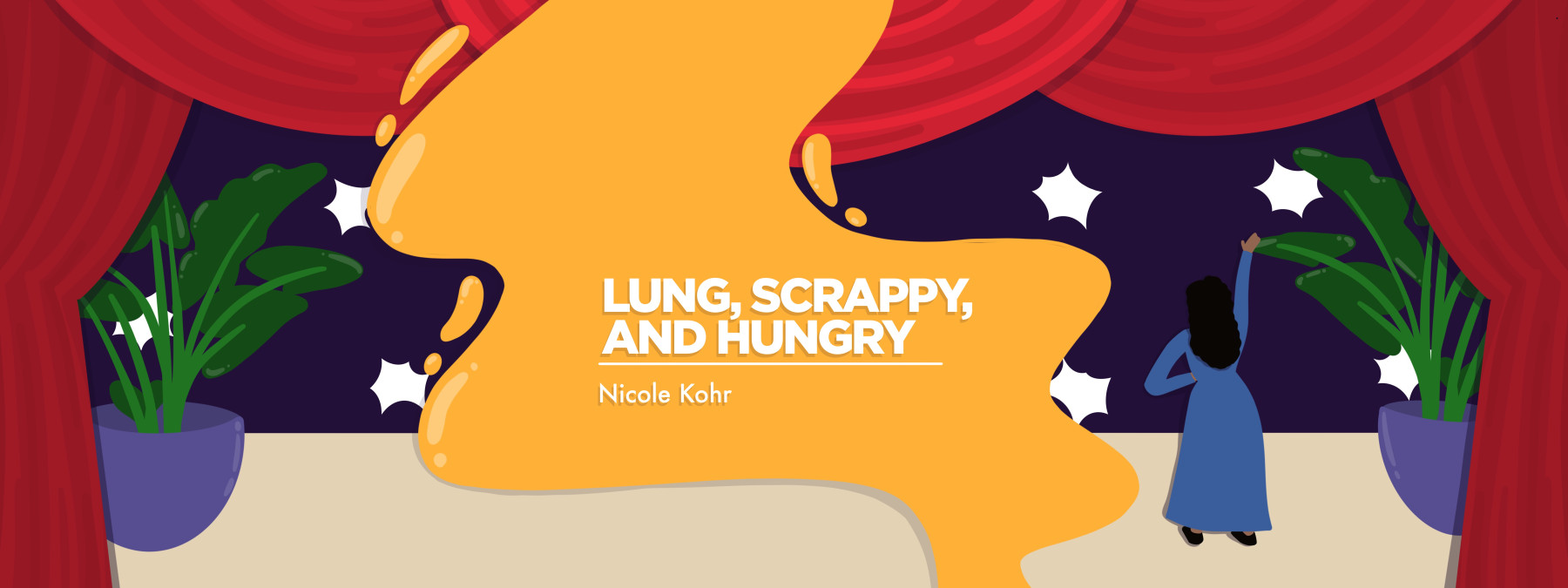Finding Your Identity in Matters of Life and Death
Written by |

I’m thankful to be alive. I was supposed to leave this world before I was 10 years old. At least, that’s what the data suggested when I was diagnosed with cystic fibrosis (CF) back in 1997.
Much has changed since then. I like to think my own stubbornness, my mother’s pursuit of clinical trials, my care team’s research, and the advancements made within the pipeline of antibiotics lengthened my timeline. Defying death, however, was not always the hardest challenge. Often, finding new and stimulating activities to help me maintain a blissful unawareness was harder.
Why would I want to remain in denial? Many therapists suggested that I should express the fear that dwelled deep inside me. But in most cases, I found this advice unhelpful. Recounting experiences about my inevitable decline was far more damaging than ignorance.
Activities like participating in theater served as distractions and enabled long-term motivation. This motivation was needed to keep up with treatments, maintain my mental health, and ignore the statistics that nipped at my heels. In short, I denied the possibility of death and focused on life — but is life enough?
This all made me think of the song “That Would Be Enough” from the Broadway musical “Hamilton.” In it, Eliza, Alexander Hamilton’s wife, attempts to grant him peace of mind during a low point in his career. Eliza reminds me of my mom, someone who always calms the guilt that clouds my judgment. Alexander Hamilton struggled with the concept of death and purpose, but his pride led him on a journey of self-destruction. My Achilles’ heel centered around labels, or rather, the labels I wanted to escape.
Alexander Hamilton wanted to be somebody, and so did I. I didn’t want to be a patient, so I yearned for platforms that allowed me to be someone else. “I’m an actress, not a patient,” I’d repeat at my doctor appointments. All the platforms blossomed into a large mask that I wore every day to fool the public into thinking statistics did not exist. Perhaps I was trying to fool myself. Ironically, the more I masked, the closer I inched toward death.
My diagnosis and coping mechanisms did benefit my stubborn personality in many ways, though. For example, I always had a hand to hold. My mom held my hand during every appointment and hospitalization. My then boyfriend, now husband, held my hand through our college journey. My care teams held my hand every time I had to choose between health and happiness — a classic Sophie’s choice on most occasions.
But questions lingered. What happens if the trauma slows to a dull roar? What happens if my lifestyle no longer demands a hand to hold? What if the hands that hold me up grow tired or bored? What if peace is not enough to motivate me?
“The fact that you’re alive is a miracle/ Just stay alive, that would be enough”
Consequence and fear alone cannot motivate for long periods of time. Every appointment at the clinic resulted in a lengthy list from the doctor of things that were “against medical advice” — and the rolling of my eyes into the back of my head. I know there’s good intent behind the words “being alive is enough,” but it sounds more like the world is lowering its standards for me. Am I not capable of achieving something more? Not everyone can wake up, “not die,” and consider that a successful day. So why should I?
“Look at where you are/ Look at where you started”
Over time, I’ve learned that finding your identity doesn’t happen because of labels, but rather reactions to things that are out of your control. I’m not sure where my journey begins and ends, because I almost identify as separate people.
Before receiving a lung transplant, Nicole was fearless, invincible, and willing to put her health at risk to protect her reputation. Most notably, she believed CF was the sole reason she was resilient. After transplant, Nicole is cautious, hyperaware of the gray area that exists between life and death. Yet, she is completely transparent, and hopeful that her stories will change the world. Mostly, she prioritizes health and family.
I’m still reveling in the beauty of the live performance of “Hamilton” that my family gifted me in June. There are days when Hamilton’s voice echoes in my ears. Is this life of “not trauma” stimulating enough? I’ve decided there is no right answer. I smile knowing I was able to see a show instead of spending holidays in the hospital. Searching for my identity, one not clouded by masks or statistics, has made every moment of boredom worth it.
If you seek validation for the efforts you’re putting into being alive, allow me to grant you peace of mind. It is enough. You are enough.
Note: Cystic Fibrosis News Today is strictly a news and information website about the disease. It does not provide medical advice, diagnosis, or treatment. This content is not intended to be a substitute for professional medical advice, diagnosis, or treatment. Always seek the advice of your physician or other qualified health provider with any questions you may have regarding a medical condition. Never disregard professional medical advice or delay in seeking it because of something you have read on this website. The opinions expressed in this column are not those of Cystic Fibrosis News Today or its parent company, Bionews, and are intended to spark discussion about issues pertaining to cystic fibrosis.








Leave a comment
Fill in the required fields to post. Your email address will not be published.